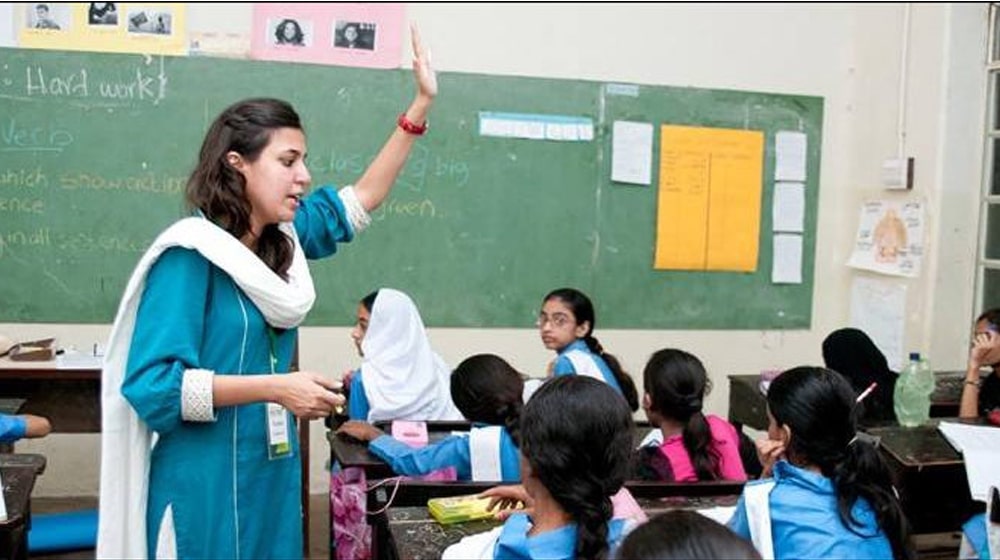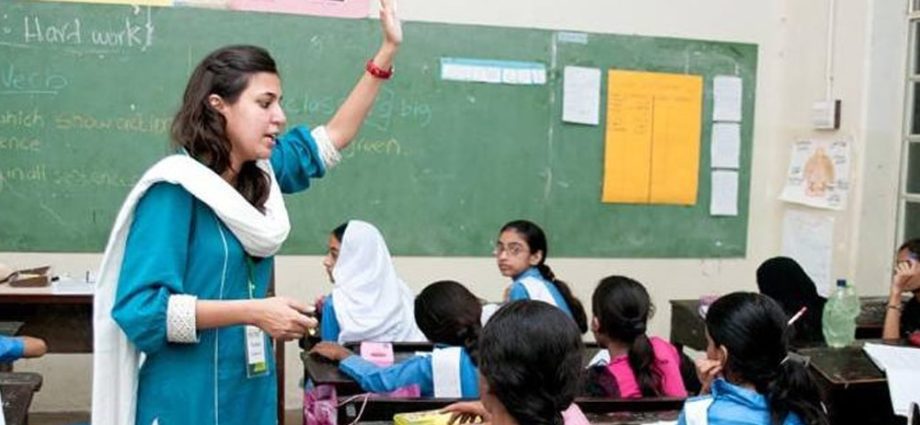
Payment of conveyance allowance to the teachers cannot be stopped during summer or winter vacations: SC
Says public functionaries are supposed to ensure the elimination of all forms of exploitation
Says terms & conditions of service of civil servants cannot be varied to their disadvantage or less favourable in view of Section 23 of Civil Servants Act, 1973
ISLAMABAD ( Web News )
Supreme Court of Pakistan has declared that payment of conveyance allowance to the teachers cannot be stopped during summer or winter vacations. Such act was illegal and discriminatory. Public functionaries are supposed to ensure the elimination of all forms of exploitation. The terms and conditions of service of civil servants cannot be varied to their disadvantage or less favourable in view of Section 23 of Civil Servants Act, 1973.
Three-member bench headed by Chief Justice of Pakistan Justice Umar Ata Bandial and comprising Justice Amin-Ud-Din Khan and Justice Muhammad Ali Mazhar delivered judgment reserved on 7th July 2022.
Government of Khyber Pakhtunkhwa had filed 76 appeals against the verdicts of the KP Services Tribunal on different appeals of the BPS-15 teachers of the KP education department.

Justice Muhammad Ali Mazhar, while authoring a 10-page judgment, said the salary structure was the fragmentation of the various components that put together the amount of recompense against the services rendered by an employee under the contract of employment which is very critical for any employee for understanding his pay package for his livelihood and means of support.
“Salary or pay is paid to the civil servants/employees in exchange for the services rendered by them and encompasses distinct components such as basic pay, allowances and other perquisites in a particular pay structure offered to an employee pursuant to the terms and conditions of service,” it said.
Besides basic pay, certain allowances are also merged in the consolidated remuneration or pay package highlighted under the different heads including conveyance allowance which may also be classified as one of the fringe benefits enjoyed by the employees as a result of their official position.
The judgment noted that the KP additional advocate general failed to point out any document, or any terms and conditions of service of the respondents in which it was ever mentioned that the payment of conveyance allowance was conditional, or that the authority, in any case, reserved the right to discontinue or deduct this amount during summer or winter vacations, nor was it argued that during the vacations the respondents, being teachers, never attended their duties or during the entire vacations they were never called upon to attend the institution.
The judgment pointed out that no other example has been placed on record to highlight that this unjust decision was taken across the board and included the civil servants of the province in their entirety, or that their top brass was also disentitled to conveyance allowance during vacations or public holidays.
Rather, the ruling noted, this discriminatory treatment was meted out only to a particular class of teachers, which cannot be construed as a reasonable classification. This type of adventurism is not permissible under the law, it added.

The court also noted that to enjoy the protection of the law and to be treated in accordance with the law is the inalienable right of every citizen. The purposefulness of Article 4 of the Constitution is to ascribe and integrate the doctrine of equality before the law or equal protection of the law, and no action detrimental to the life and liberty of any person can be taken without due process of law.
“Public functionaries are supposed to execute and perform their duty in good faith, honestly and within the precincts of their legally recognized powers so that the person concerned may be treated in accordance with the law.”
It further said that the objective of good governance cannot be achieved by exercising discretionary powers unreasonably or arbitrarily without rhyme or reason, and/or without compos mentis, but such objective can only be met by adhering to the rules of justness, fairness and openness as enshrined under Articles 4 and 25 of the Constitution.
“In the case in hand, the non-payment and/or deduction of conveyance allowance from monthly perks during summer and winter vacations would be tantamount to the violation of fundamental rights. Article 3 of the Constitution casts an unavoidable and inescapable obligation upon the state to ensure the elimination of all forms of exploitation, and the gradual fulfillment of fundamental principles from each according to their ability, to each according to their work,” the judgment stated.
Whereas under Article 38, the judgment observed, it was provided that the state shall secure the wellbeing of the people, irrespective of sex, caste, creed, or race by raising their standard of living, by preventing concentration of wealth and the means of production and distribution in the hands of a few to the detriment of general interest and by ensuring equitable adjustment of rights between employers and employees, and landlords and tenants.
It said that the discriminatory treatment with the teachers was totally ill-founded, prejudicial and inequitable. Instead of providing more congenial working conditions and environment to encourage the noble profession of teaching and to effectively implement and comply with the obligations enshrined under Article 25-A of the Constitution, the teachers’ conveyance allowance, being one of the components of the terms and conditions of their service, was discontinued without any rhyme or reason or any written orders/notification.
“Teachers play an important role in the students’ lives by making them successful in their careers; they are considered builders of a better and brighter tomorrow and form one of the main pillars of a civilized and cultured society.
“The future development and wellbeing of every country are highly dependent on good educationists being a vivid source of learning, achievements and enlightenment for the benefit of their students.”
It said that the expression “alma mater” was a Latin phrase currently used to identify a school, college or university that one formerly attended or graduated from.
The philosophy and importance of “alma mater” cannot be achieved without good teachers working wholeheartedly and with honest devotion and commitment to the sacred duty of imparting education which they ought to have performed sincerely in the best interest of their students by all means to improve the rate of literacy in the country.
At the same time, a heavy responsibility lies on the shoulders of teachers to perform their duties honestly, sincerely and diligently for imparting education wholeheartedly for the better future of this country, it added.
Justice Muhammad Ali Mazhar wrote that the founder of our Nation, Quaid-e-Azam Muhammad Ali Jinnah, in his address to the NWFP Muslim Students Federation in April 1943, articulated that “without education, it is complete darkness and with education it is light. Education is a matter of life and death to our nation”.
The court in conclusion said that in the wake of the above discussion, we do not find any irregularity or perversity in the impugned judgments passed by the learned Khyber Pakhtunkhwa Service Tribunal, Peshawar. Accordingly, these Civil Petitions are dismissed and leave is refused.

